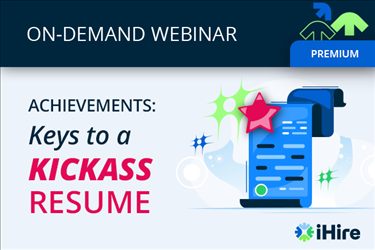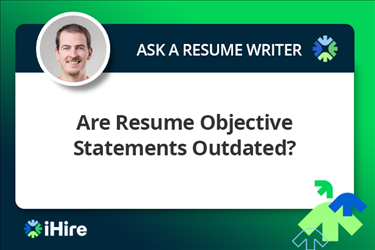- Job Seeker Resources
- |
- Last Updated: April 11, 2024

How to Put Unpaid Experience on Your Resume
In a competitive job market, every bit of experience can make a difference, whether it comes with a paycheck or not. Leveraging unpaid experiences can add valuable depth and dimension to your resume. But how do you include these experiences without undermining your professional accomplishments? Whether you’re a recent graduate, a career changer, or reentering the workforce, read on to discover how to turn uncompensated experiences into powerful assets in your job search.
Can You Put Unpaid Work Experience on Your Resume?
The truth is, all relevant and recent experience, whether paid or unpaid, is valuable and should be considered for inclusion in a resume. Do internships, volunteer work, or other uncompensated roles “count?” Absolutely! New skills were gained and existing qualifications were strengthened, with or without a paycheck.
Volunteerism, internships, pro bono projects, student rotations, etc. can help to cover employment gaps, show investment within the community, and/or demonstrate a commitment to professional development. For example, consider a stay-at-home parent returning to the workforce as an Office Manager after a five-year hiatus. In addition to managing the household, this candidate took multiple online courses in business administration and volunteered to set up and maintain multiple databases at their local food bank. Though unpaid, this recent experience is completely relevant to the job seeker’s current target and should go on their resume.
Unpaid experiences can also highlight your commitment to growth, willingness to invest in your community, or show how you’ve used time away from paid employment constructively. However, it’s important to present this experience appropriately.
Video: How To Put Unpaid Experience on Your Resume
How to Put Unpaid Work Experience on Your Resume
When including unpaid work experience on your resume, follow these guidelines to present it effectively:
- Identify the Relevance: First, decide how relevant the unpaid work experience is to the job you’re applying for. If it’s highly relevant, include substantial details; if not, a brief mention may suffice.
- Choose the Right Section: Depending on its relevance, you might include unpaid experience in your primary “Experience” section or create a separate section such as “Volunteer Work” or “Professional & Community Affiliations.” It can also make sense to create a separate section for unpaid experience on your resume. For example, if you are a nursing student with 5+ rotations and your prior paid experience is not very relevant, using a separate “Clinical Rotations” section and placing it ahead of your “Professional Experience” would be advantageous.
- Use Accurate Titles: Label the roles appropriately, such as "Volunteer Project Manager" or "Finance Intern." This ensures the reader knows these were unpaid roles. A few examples: Volunteer Project Manager, LPN Student, Finance Intern, Group Leader (Volunteer). When including unpaid positions among paid positions within the experience section, label that section “Experience” or “Experience History,” not “Professional Experience” to avoid possible misinterpretation.
- Highlight Skills and Achievements: Focus on the skills you’ve gained, the projects you’ve completed, or any specific accomplishments. Quantify these where possible.
- Consider a Cover Letter Mention: If the unpaid experience is highly relevant to your target role, consider highlighting it in your cover letter, explaining why it was valuable and how it prepares you for the prospective position.
- Ask for References: If the unpaid work was substantial, consider asking for references from those you worked with. They can vouch for your skills and contributions.
Create a Stand-Out Resume
Register today to get more resume tips and templates to help you land an interview.

Job Seeker Sign In
We value your privacy
By including unpaid work experience on your resume in a strategic and thoughtful way, you can demonstrate a broader range of skills and experiences to potential employers. The key is to present this experience as relevant, valuable, and in alignment with your career objectives. Whether paid or unpaid, your experiences are part of your professional journey and can be leveraged to help you stand out in the competitive job market.
For more resume tips and tricks, head to our Job Seeker Resource Center or check out our Resume Builder for a quick and easy way to create a strong document.

August 09, 2023
Sign In or Register to access all articles and insider tips for help in your job search.
Search for iHire Jobs
RELATED JOBS
RELATED RESOURCES
Find the Right Job Faster
- Get personalized job matches sent to your inbox every day
- Connect directly with employers before your competition
- Advance your career with expert advice on interviewing, salary negotiation, and more
We value your privacy




